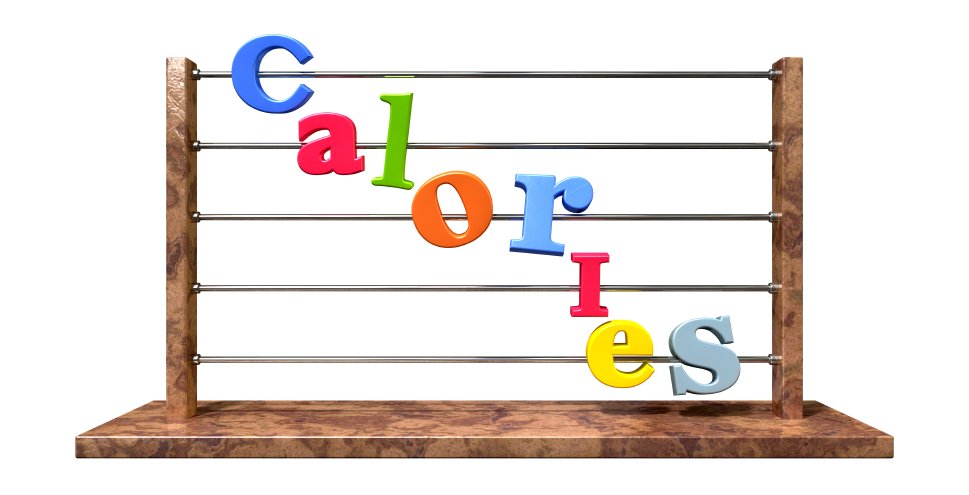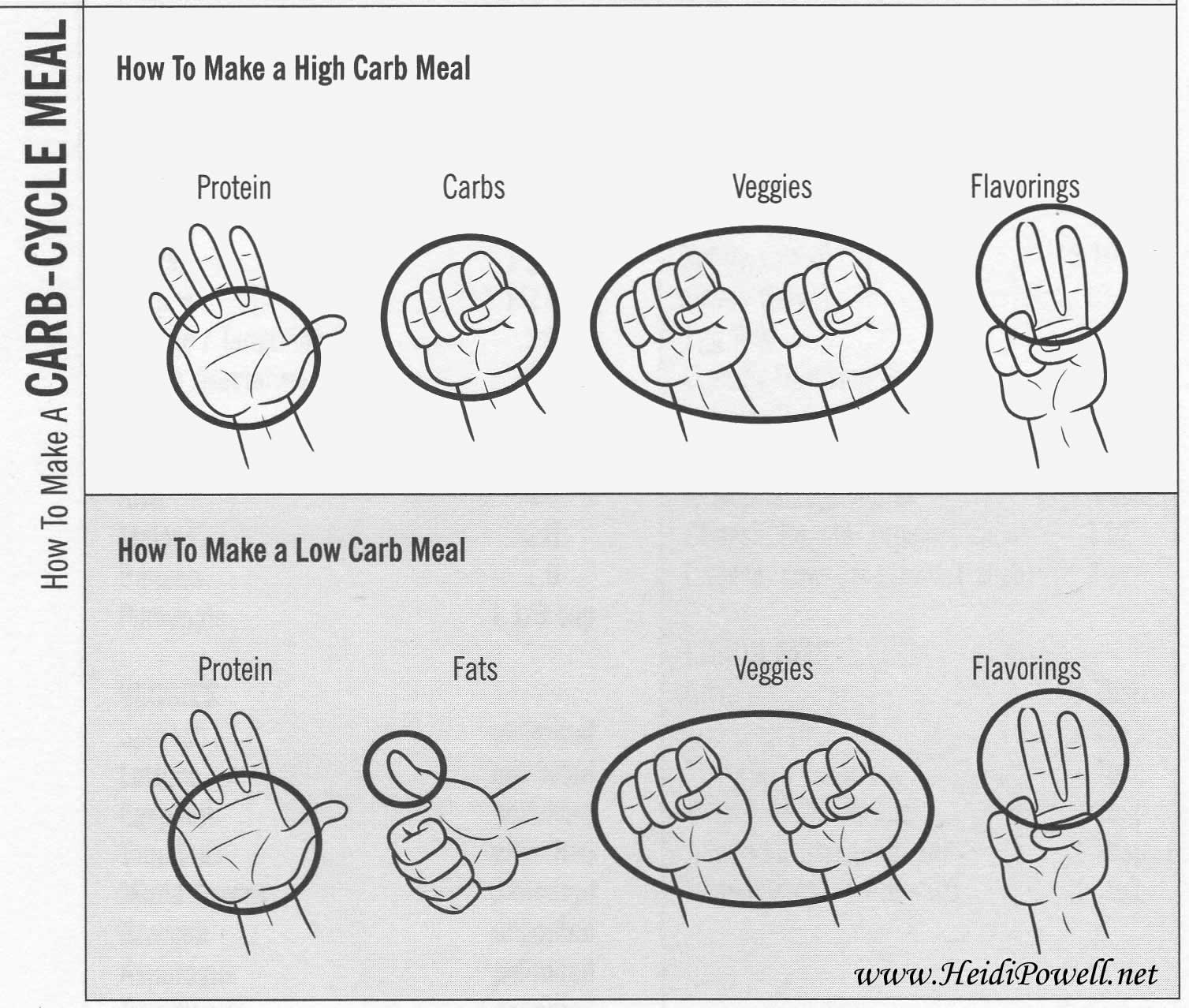You’ll find them in 99.99% of everything you eat and drink. They can be your greatest friends or your worst enemies. Eat fewer than you need and you lose weight. Eat more than you need and you gain weight. Yes, it is that simple.
Since calories affect everyone everyday, it?s important to understand them: what they are, what they do, and how to make them work for you instead of against you.
Some basic facts about calories:
- They represent the amount of energy in the foods you eat and drink.
- They are not partial to certain types of foods. A calorie from a carrot is the same as a calorie from a doughnut (although the carrot calorie is much healthier, of course!).
- Different types of foods are automatically higher in calories. Take 1 gram each of protein, carbohydrate, and fat. The grams of protein and carbohydrate each contain 4 calories, while the gram of fat has 9. Yes, that?s more than double the calories gram per gram. Yikes!
- One pound of fat = 3500 calories.
So how do you get calories on your side in your weight loss battle? First of all you need to know your Basal Metabolic Rate (BMR), which is the number of calories your body needs every day just to function properly?to breathe, circulate blood, adjust hormone levels, digest food, grow and repair cells, and so on. While there are several formulas to figure out your BMR, here?s an easy one:
Current body weight x 12 = BMR
150 pounds x 12 = 1,800 calories (BMR)
Simply put, if you eat more than your daily BMR, your body stores those extra calories as fat and you gain weight. If you stay below your BMR, you create a calorie deficit and you lose weight. One caution: women should never eat less than 1,200 calories a day, and men should never go below 1,500. Consuming too few calories sends your body into a protective starvation mode and slows down your metabolism, and a slow metabolism doesn?t burn calories as fast and can cause other problems as well.
There are three basic ways to create a calorie deficit:
- Eat fewer calories than your BMR.
- Exercise, because it burns calories and builds muscle, and bigger muscles burn even more calories!
- A combination of #1 and #2?the best option by far.
Here?s how this works:
- If you create a daily 500-calorie deficit, you?ll lose 1 pound a week.
- If you create a daily 1,000-calorie deficit, you?ll lose 2 pounds a week (remember that cutting too many calories from your diet is not good).
I know, I hear you: ?But Heidi, I don?t like to count calories.? You?re not alone. Counting calories is so not fun. However, it?s really important to know what you?re taking into your body every time you open your mouth. Studies show that most people think they?ve eaten 20% fewer calories than they actually have, so trying to estimate your calorie intake is a recipe for disaster.
Until you have an opportunity to weigh and measure your food to figure what your “correct” portions look like, this simple graphic shows a safe and easy way to choose appropriate portion sizes without measuring cups or a scale. This should also help keep you from creating a calorie surplus:
Some final words of advice:
- It?s important to recalculate your BMR as you lose weight.
- Some calorie tracking apps add the calories you burn from exercise into your daily to-eat total, making it look like you can eat more than you actually can, and if you do eat all those calories, you won?t have a calorie deficit at the end of the day. Instead, eat the number of calories in your daily eating plan, and subtract the calories you burned to see your deficit. Remember: one pound of fat = 3500 calories, so work to eventually create a 3500 calorie deficit.
- You can eat calories much faster than you can burn them, so don?t use those exercise-burned calories as permission to eat more food??I burned 500 calories this morning, so I can eat this cupcake.? So not a good way to do it!
To learn more about our preferred and proven eating and exercise plan?Carb Cycling?check out our book, Choose More, Lose More for Life.



205 Responses
It is my understanding that a basal metabolic rate is merely what you burn at rest…and and 20%-30% more calories are burned depending on your lifestyle. THEN exercise is additional calories burned. I recently got my rmr tested at a nutrition clinic, which is basically the same as bmr but not as accurate as a bmr test and my rmr is 2030. I had been eating 1500 calories and not losing weight for 10 weeks and I weigh 230 currently as a 31 yr old female. I am treating hypothyroidism but have adjusted my meds before trying to loose weight, and my by results, it seems my metabolism is fine and better than most womens. Had I kept eating 1500 my metabolism would have slowed down. I was shown the math that with my personal training I am doing, and the fact that I am burning calories doing basic things throughout the day 2030 cal + Lifestyle activity (609) + Exercise 253 Calories=My total caloric expenditure is 2892 calories, almost DOUBLE what I was eating. My body was in starvation mode, holding onto fat because it was not being properly fueled and the body was preparing for famine. I am reading from multiple sources that eating below a bmr actually slows metabolism, because the body learns to adapt on less calories and then you have a new set point where you easily gain. Also too much of a deficit makes the body shut down and only prioritize the most important body functioning such as heart function and organ function. My body temp was near 97 every morning, not the standard 98.6- a classic sign the body is conserving as much energy as it can.
It’s obvious to me that a deficit from your total caloric expenditure is the best way to loose weight, as long as you are not eating below your bmr. My nutritionist said as well if I just eat my bmr and no less, than my activity throughout the day plus exercise is my deficit. I started to loose weight at about 2.5 lbs a week once I started eating above my bmr while maintaining a deficit from my total caloric expenditure.
Hi Heidi,
What about if you lead an active life style? I do a lot of HIIT training, weights, cardio, dance, you name it. 1200 calories seems a bit on the low side for my particular life style. Do you have any suggestions for a caloric range for very active people? Thanks!
Hi Kelly: The 1200/1500 calorie recommendations for women are for those who want to lose weight. If that is not your goal, then you’ll need to adjust your calories to take into account your workout routine and your goals, and this post has some good recommendations on how to do that. Unfortunately, there’s really not a one-size-fits-all answer to your question because each person’s body composition is different, as well as their nutrition and workout routine, as a lot depends on the duration, intensity, and frequency of a person’s workouts vs. their calorie consumption. I hope this helps answer your question, and we wish you the best as you work to achieve your goals!
hi heidi im 15yrs and im trying to lose 60lbs. my BMI was classed .1 alway from obese. ive lost 30lbs already and ive always being struggling with emotional eating. its getting even harder to control now. any time im upset or angry all i can eat is carbs and sugar. do you have any advice. ps love you and chris sooooooo much
Hi Adejoke: You’re doing awesome! You can get some great tips for teens in this post: https://heidipowell.net/7201/teens-and-healthy-body-image-its-not-just-about-the-pounds/. 🙂
I have a question. According to a machine my gym uses (the in body) my BMR is only 1300 although I am a 126 pound girl. I’ve gained muscle but am gaining far too. How much can I cut my calories without it being too much?
Thanks!
Hi Ariana: Chris and Heidi recommend that women eat no fewer than 1200 calories a day, and remember, your body burns calories both through exercising and through normal daily movements. The key to weight loss is to burn more calories than you consume, so hopefully this info will help you figure out what will work best for you!
I recommend getting your resting metabolic rate tested. I was undereating and not losing weight. My body was in starvation mode and hoarding everything I was eating.
if you’re bmr is 1300, you’ll burn extra calories throughout the day to digest food, stand, breathe, etc. At the bare minimum, this is 20% additional calories burned…so figure out what your TOTAL caloric expenditure is. Your total energy expenditure if you work a sedontary job is 1560, and if you add working out thats more calories. SO lets say you workout 30 min a day and burn 200 calories. Your total energy expenditure then becomes 1760. From that point…you need a deficit to loose weight, but if you eat below 1300, your metabolism will slow down further as it will learn to adapt on less calories. If you eat 1300 calories and exercise, you should be losily fairly steady.
Sometimes standard formulas don’t apply to peoples bmr. Best to get tested so you know exactly how much you need to eat. You might be suprised if it’s higher and you’re undereating, which is what happened to me and I was gaining weight because of it.
Hey
Ive been reading the articles and reading the comments but it still a bit confusing working out snacks that are just protein and fat on low carb days then snacks that are protein and carbs on high carb days is it possible to see an example for a menu of both a low and high carb day if you are follwing the turbo carb cycling, thanks.
Hi Sam: Here are some meal ideas for low- and high-carb days (all of these recipes are from Chris and Heidi’s books: “Choose to Lose” and “Choose More, Lose More for Life”): Low-carb day: Breakfast (within 30 minutes of waking): Basic Omelet with a corn tortilla to make it a wrap. Snack (3 hours later): A protein shake with a portion of a healthy fat, like peanut butter, mixed in. Lunch (3 hours later): Tomato Basil and Garlic Chicken with a portion of olive oil drizzled on top. Snack (3 hours later): Sonora Cottage Cheese with a portion of avocado. Dinner: (3 hours later): Lemon Chicken drizzled with salad dressing.
High-carb day: Breakfast (within 30 minutes of waking): Denver Omelet with a portion of your favorite fruit or oatmeal on the side. Snack (3 hours later): Greek Yogurt Parfait with a portion of low fat granola. Lunch: (3 hours later): Caribbean Jerk Chicken with a portion of brown rice. Snack (3 hours later): Protein shake with a portion of oatmeal mixed in. Dinner (3 hours later): Apple Cider Chicken. And you can get extensive list of food options in all of Chris and Heidi’s books: https://heidipowell.net/books-dvds/. I hope this helps!
And remember, you can have veggies (the non-root/non-starchy type) with every single meal, and you can use any of the foods on Chris and Heidi’s approved foods list – in the proper proportions – to create meals to fit your needs.
Hello Heidi! I am 16 years old and have been struggling to lose the last 10 lbs for a few years now and am striving for a toned and lean body by May 15th. I have done multiple programs for weight loss but have never reached my goal of 112 lb before the start of summer in order to trim the last bit off my midsection! I am currently weighing 122 lbs and doing body-for-life along with interval training for twenty minutes in the morning and was looking at your carb cycling program and most recent book. I have a hard time working out and trusting the program I am on since I have done so many and come so close with just 3 or 4 lbs to go and I tend to gain it back rather easily. My stubborn body has once again placed me on a plateau with 10 lbs to go. I was wondering if your program would be appropriate for me and how I should approach it. I have a consuming school schedule to keep up with which leaves me with about an hour in the morning and forty five minutes to an hour in the afternoon for working out. You’ve always been an amazing role model for me and I am very appreciative of your help! Thank you!
Hi Kylie: Since you are still a teenager, it would be best to discuss any nutrition and exercise program, including Chris and Heidi’s, with your healthcare team first and then work with them to put a program together that will work for you. You can get some other tips for teens in this other blog post: https://heidipowell.net/7201. We wish you the best!
Heidi,
I am also wondering about net calories. I am 39 yrs old, 201 lbs / 21 percent body fat, BMR = 1964 (per bodybuilding.com calculator / heidi’s calc has me at 2,412 not sure why).
I am curious about the net calories.
The other day I consumed 2155 calories with a ratio of 52 percent Protein (279.18 g), 25 percent Carbs (134.17 g), and 23 percent Fat (54.6 g).
I burned a total of 917 calories via morning 50 minutes Deltoid workout and afternoon 60 minutes cycle class.
This gives me a net of 1,238 calories which would be too far below the 1,500 calorie minimum for Men. Do I count the Net as my final or do I count the Consumed as my final?
I want to be safe and not go below the 1500, just not sure if that is consumed or net 1500?
Hi Wes: We go by the net calories for the day: calories consumed – calories burned (through ALL daily activities) = calorie deficit (lose weight) -or- calorie surplus (gain weight). Hope that helps!
Hi heidi
Im just wondering about how many calories should i burn in the morning to lose weight?
Hi Karolin: There’s really not a one-size-fits-all answer to this question since it depends on your eating plan, how many pounds you want to lose and how quickly, the exercises you’re doing, your body composition (bones, muscle), and other factors. Chris and Heidi recommend up to an hour of cardio 5-6 days a week, as well as regular strength training. If you’re interested, here’s a post that outlines their carb cycling program: https://heidipowell.net/9060.
My question is I wear my Fitbit and it says I am burning 3200 calories a day and eating 1600 and having 100 grams of protein and I am not loosing. Please help I don’t want to give up.
Hi Heidi: I’m so sorry for your frustration! It sounds like you’re on the right track, you just might need to switch things up a bit. Are you tracking your sodium and water intake? Sodium can add water weight so it might appear than you’re not losing pounds. And if you’re not drinking enough water, you body could be holding the water you are drinking as a type of survival thing. Chris and Heidi recommend drinking 1/2 you body weight in ounces every day (200 lbs = 100 ounces of water). Look at these two things and see if that will help. We wish you the best!
Hi Heidi,
Thanks for putting all the carb cycling info and help on your site!! I’ve been reading through the comments and couldn’t find anything about nursing moms. I’ve got a 5 month old breastfeeding only little girls and I’ve been training hard for the last 2 months eating mostly clean but definitely not denying myself?. I am starting the carb turbo cycle tomorrow but I was wondering if I need to change anything up since I’m nursing. I have a great supply and don’t want to have that diminish but at the same time I’ve got about 15 lbs I want to shed. Should I take in extra fats everyday to be on the safe side? And what time of day should my last meal be?
Thanks for all you guys do!!!
Sarah
Hi Sarah: Here’s a post that outlines Heidi’s breastfeeding nutrition program: https://heidipowell.net/2275. Hope it helps! And congratulations! ?